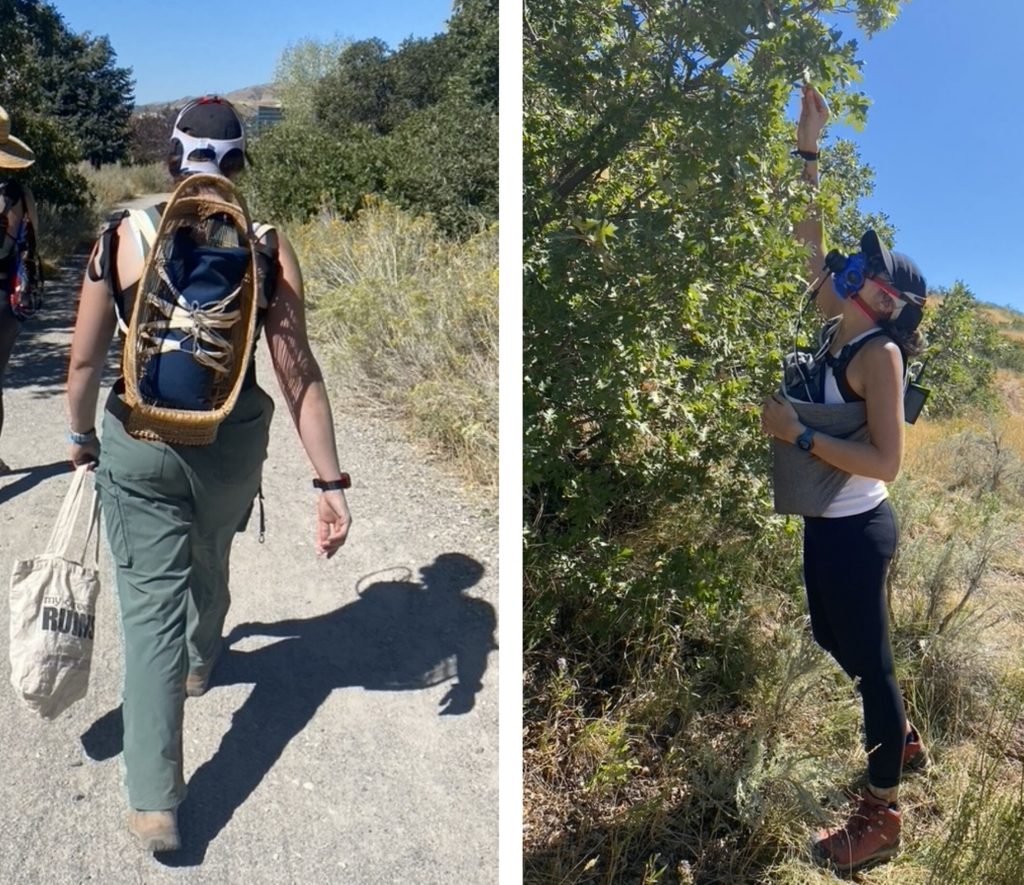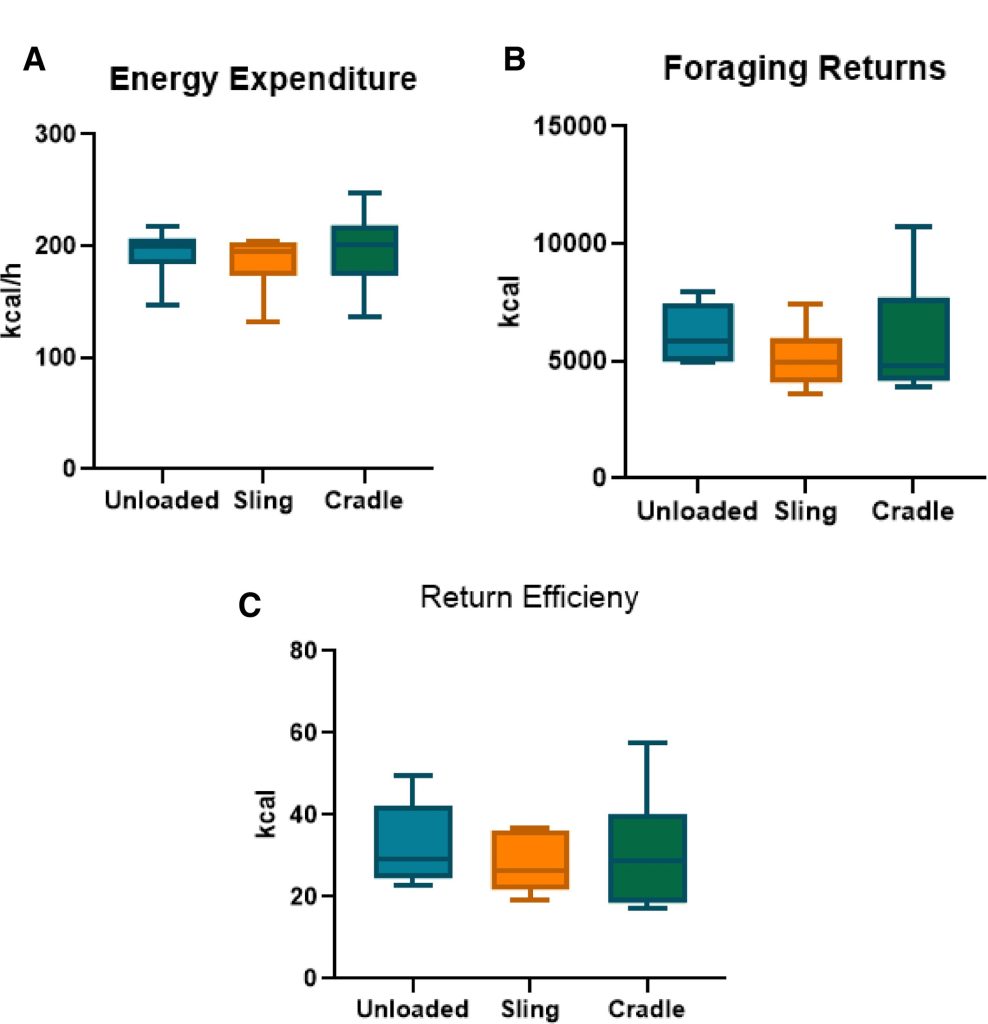This research was the direct result of a conversation at a conference. Conversations and ideas fly at conferences, but I am not sure I have ever had one go from just talking to collecting data within a few short months.
Our collaborator, Dr. Alexandra Greenwald, is an archaeologist interested in what women were doing and the technologies they used to not only care for children, but also maintain their subsistence activities. For this study, looked at the metabolic cost of gathering acorns. then we compared that cost to the cost of gathering acorns while carrying a “child” (it was a sandbag) in a sling and then in a cradle that can be worn on the back or set down. We measured metabolic cost as well as caloric return on acorns gathered.

Results were not significantly different for this study, but we were also only able to measure among six participants. However, the trends do indicate that the cradle improved foraging efficiency, demonstrating the importance of improved technology enabling women to maintain their activities while also caring for children. This is a great basis and model for examining the impact of early technologies on foraging efficiency as well as the importance and impressive nature of women’s work.

